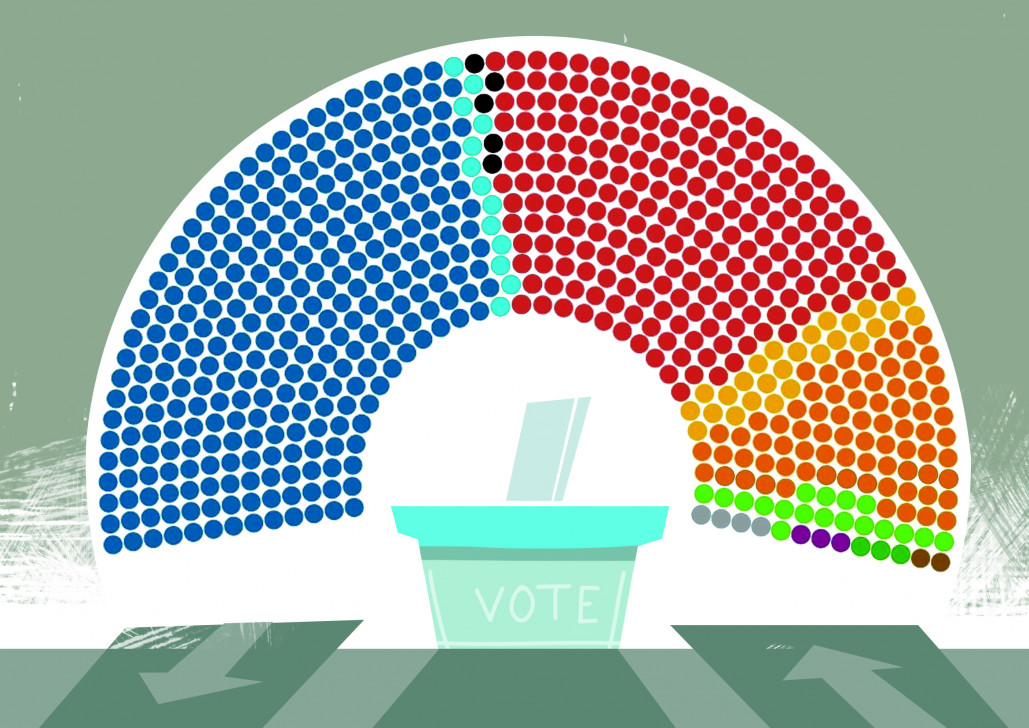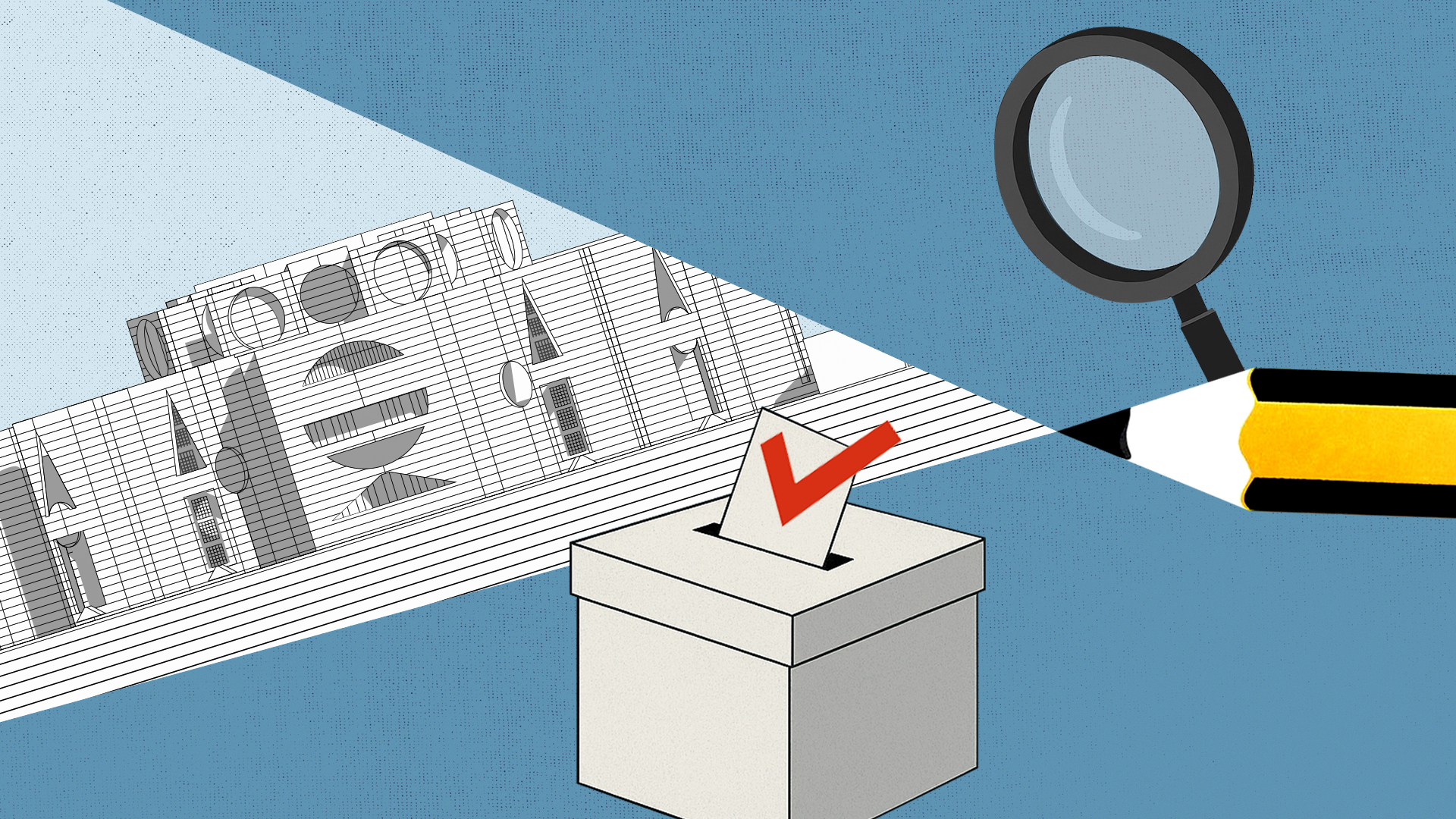Introducing PR system is a risk Bangladesh cannot afford right now

"I don't think my vote will count this time. I don't understand any of this PR system. I am not sure who I am even supposed to vote for." This is a frustrated remark from a tea vendor at a small stall in Barguna's Betagi upazila, about the upcoming 2026 national election. I hear conversations like this every time I visit my village home. It is a powerful reminder that people in far-flung areas of the country are not ignorant about national politics. They have an unmistakable interest in the direction the country is going, even if the specifics of a complex system like "PR" (proportional representation) leave them completely in the dark. Furthermore, it might not be just a local phenomenon limited within a village—many people in the country likely feel the same way. So, it is worth asking: is it right to introduce a system that so profoundly affects people's lives when they have no clarity about how it works?
Proportional representation (PR), in simpler terms, is the idea that a party's share of seats in parliament should mirror its share of the national vote. You would vote for a party, not a local candidate, and the party would then select its MPs based on its proportional share. In theory, this sounds fairer and promises greater inclusion, potentially giving smaller parties and minority groups a voice. However, it also means your local MP may not be the person you know or voted for directly.
The problem is that transplanting any system without considering our own political soil is a risky move. Our institutions are already under immense strain and deeply politicised from the previous era, making the simple act of holding a credible election a monumental challenge. In this environment, a sudden incorporation of PR seems less like a reform and more like an invitation to chaos.
Look at global examples. Italy can be the classic case study: under PR, it cycled through more than 50 governments in as many years, a constant churn of fragile coalitions collapsing. Political pundits called it a "democracy of constant crisis." Israel, which also has similar systems, has gone to the polls five times in four years because no party can form a stable majority. In these systems, tiny parties with just a handful of seats can end up holding the balance of power, wielding influence far beyond their actual public support.
While PR has the potential for making parliaments more representative, the cost could be incredibly high. Stable, single-party majorities become rare, replaced by the constant bargaining of coalition governments. This works in places like Germany or the Netherlands, where there is a deep-seated culture of compromise and robust institutions. Let us be honest, our current political temperament is different from theirs. Our main parties cannot even agree on the basic rules for an election. Hence, the idea that they can smoothly share power in a coalition feels, frankly, unrealistic. At a time when we are facing economic headwinds and climate threats, do we really want to trade stability for prolonged uncertainty?
Furthermore, in countries with strong social services, the local MP's role is less about delivering goods and more about national lawmaking. But in Bangladesh, the direct link between an MP and their constituency is everything. Voters know who to petition for a new road, a school, or justice. They know who to hold accountable at the next election. PR severs that direct bond between the constituents and their local MP. Under PR, MPs become accountable to the party leaders who place them on the nomination list, not to the people of the respective constituency. Therefore, with PR, we might risk creating a class of "party creatures" instead of public representatives.
Pushing for PR in the 2026 national election feels like a constitutional gamble we cannot afford. It would require massive legal and administrative overhauls, not to mention a public education campaign that seems impossible in the current timeframe. A poorly executed rollout would only fuel distrust and conspiracy theories, undermining the very credibility we are trying to restore.
Saying no to PR for now does not mean saying no to reform. What we desperately need are tangible improvements: a stronger, truly independent Election Commission, strict rules on campaign spending, and non-partisan, independent law enforcement agencies. Perhaps, we could even pilot alternative voting methods at the local level first. Some countries use mixed systems that balance local representation with proportional fairness; that is a conversation worth having once we have built a stronger foundation.
For the upcoming election, PR might just be a cure worse than the disease. After a long absence of credible elections, our priority should be rebuilding trust through neutrality and fairness under the current system. We can debate about introducing new models to our system at a much later, more appropriate time—with careful planning and clear eyes. Right now, Bangladesh does not need a grand experiment; rather, it needs an election everyone can believe in.
Colonel Harunur Rashid Khan (retd) is senior security adviser and crisis management specialist of the United Nations.
Views expressed in this article are the author's own.
Follow The Daily Star Opinion on Facebook for the latest opinions, commentaries and analyses by experts and professionals. To contribute your article or letter to The Daily Star Opinion, see our guidelines for submission.



 For all latest news, follow The Daily Star's Google News channel.
For all latest news, follow The Daily Star's Google News channel. 

Comments